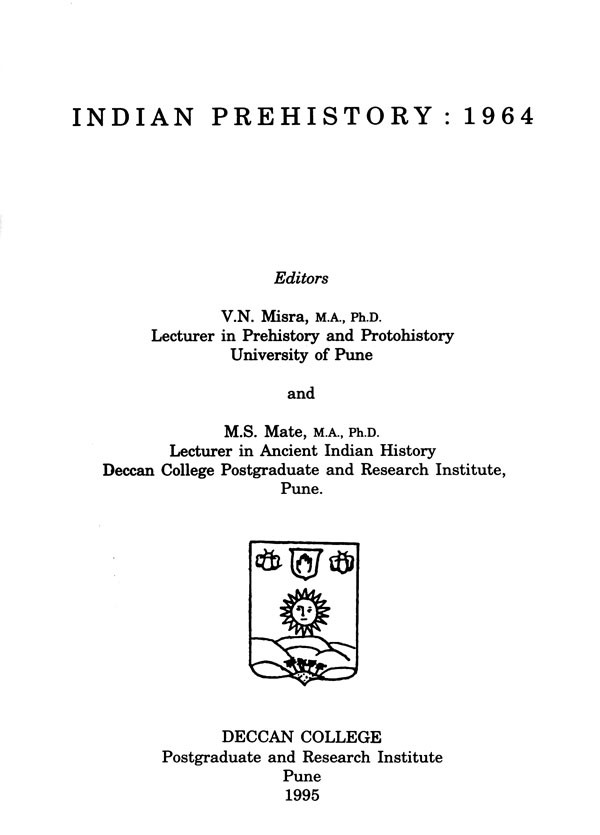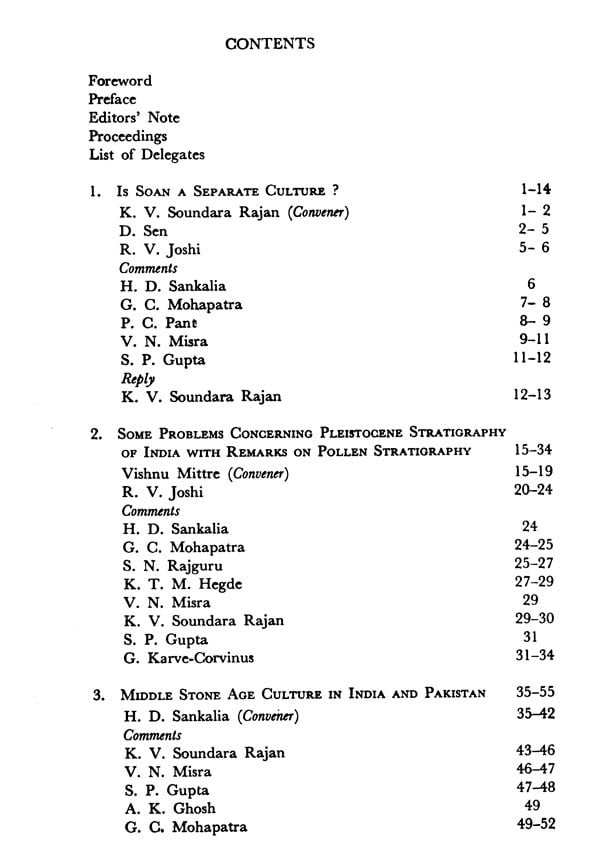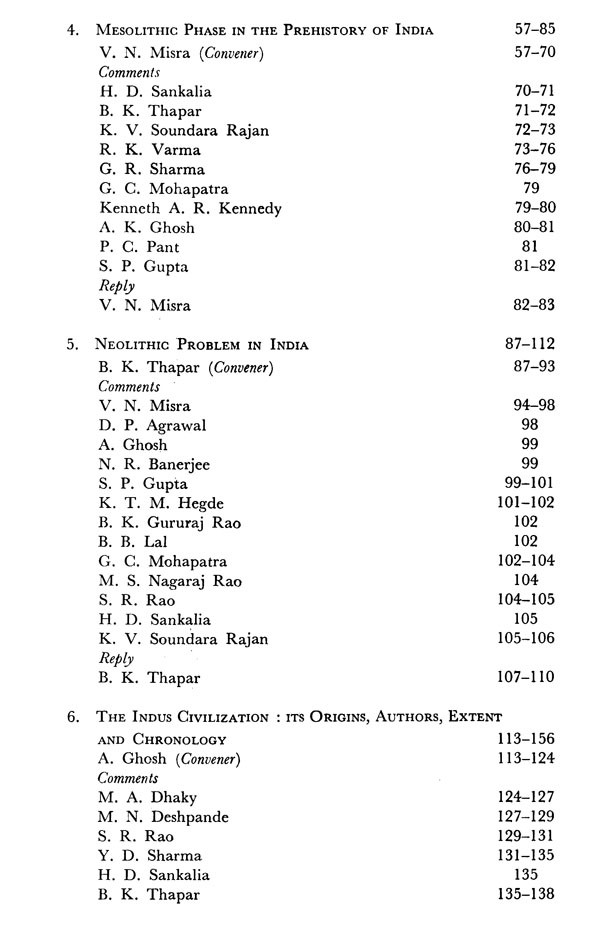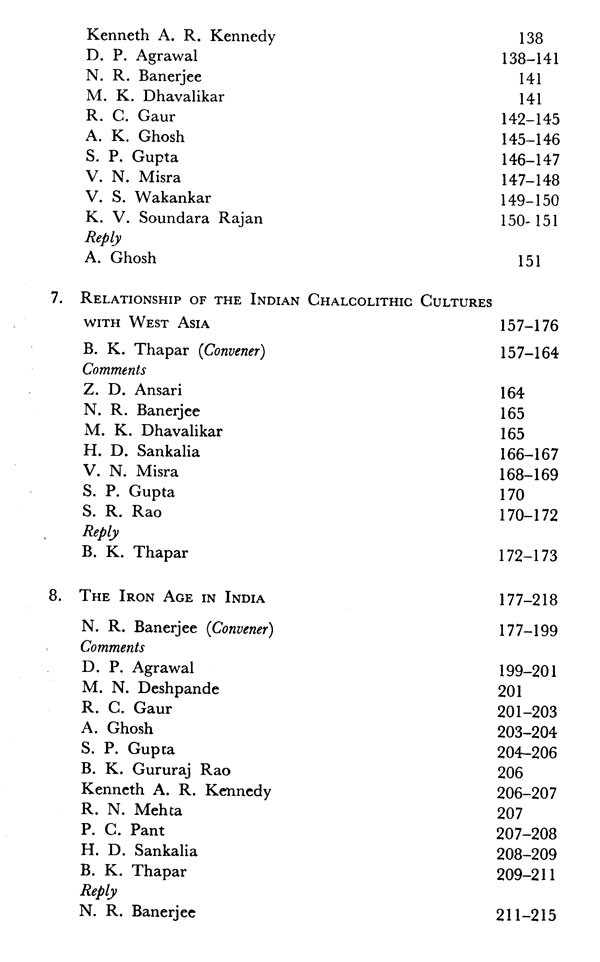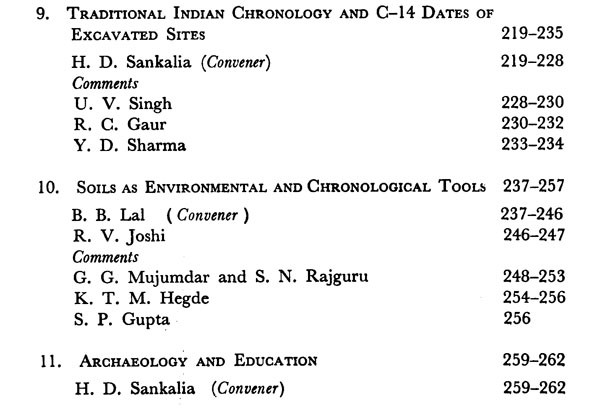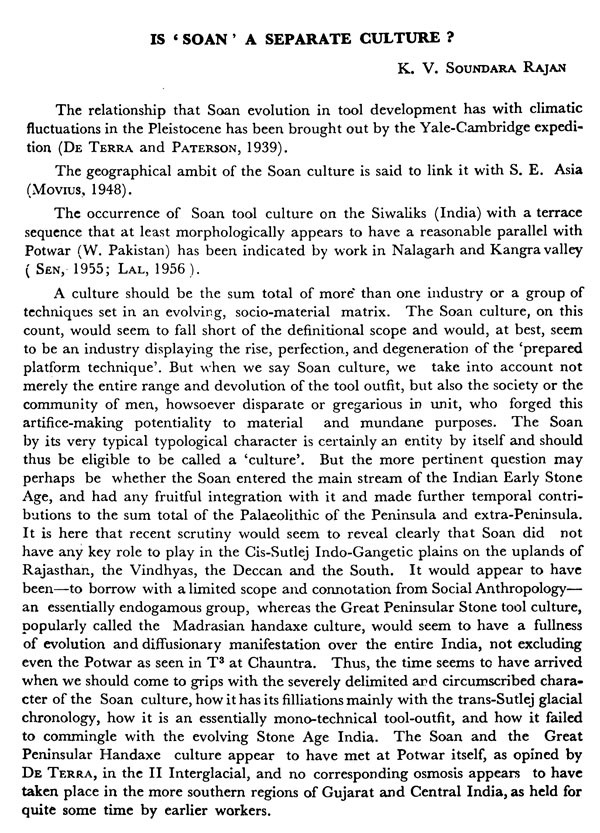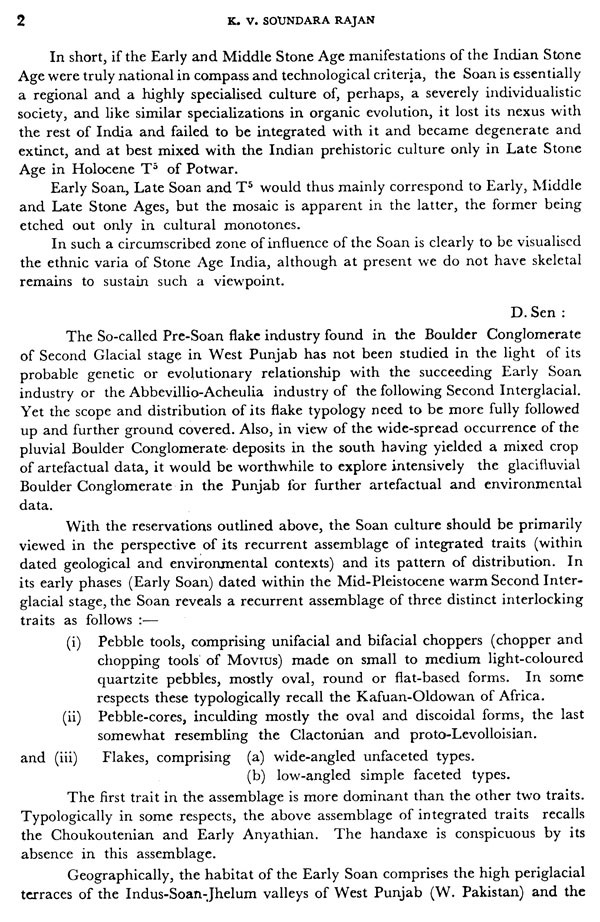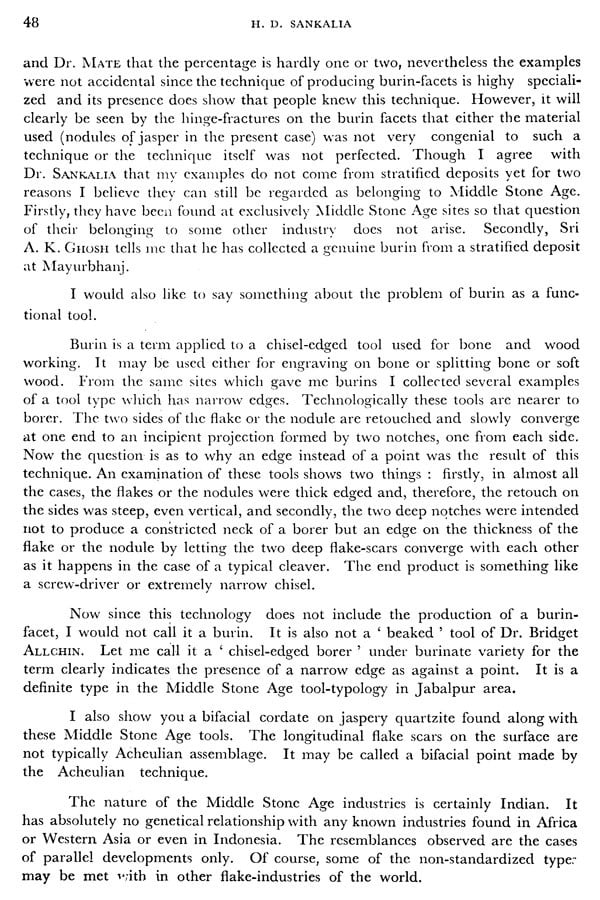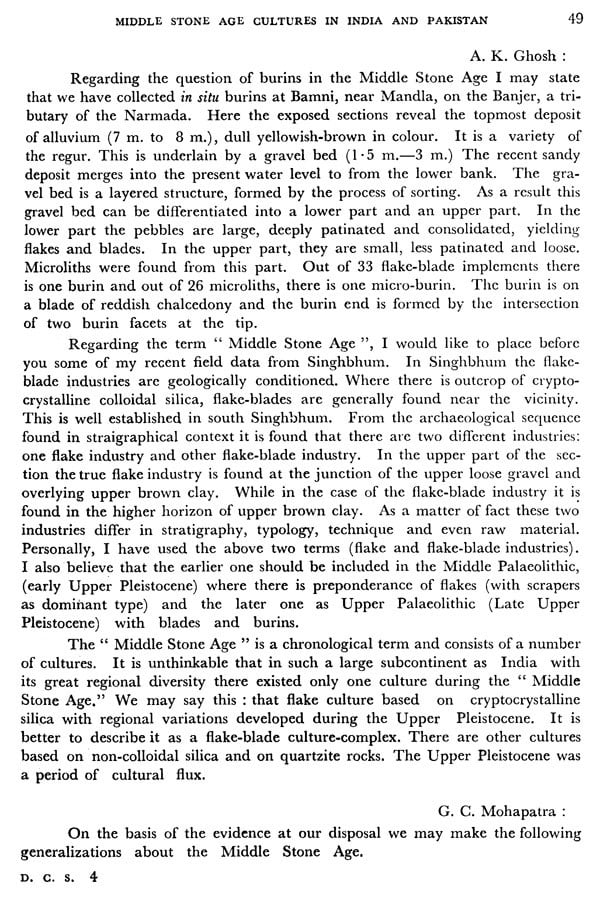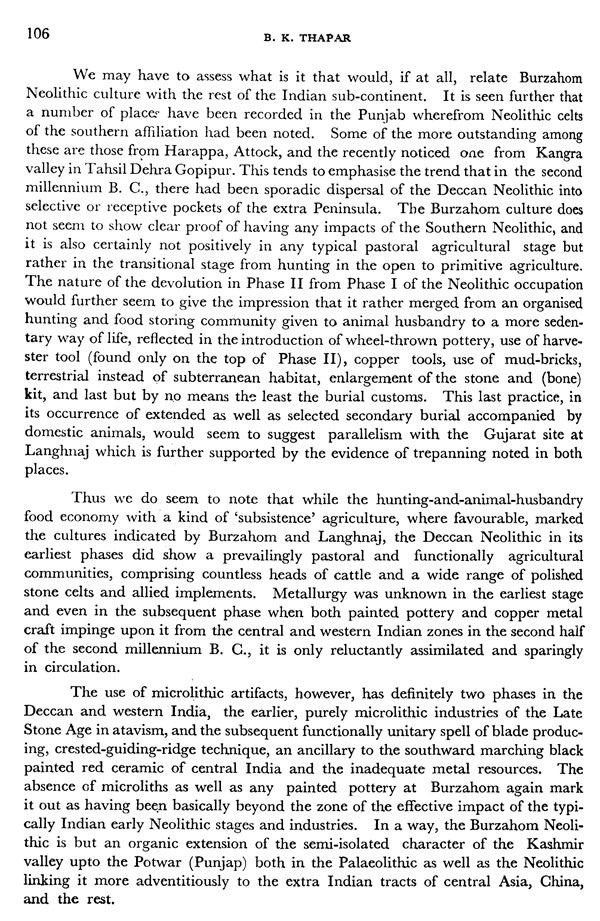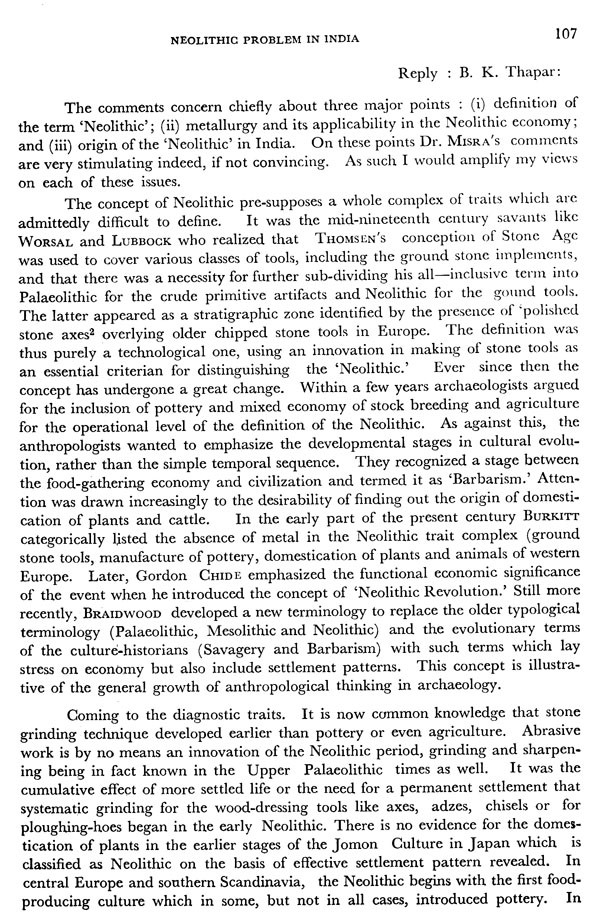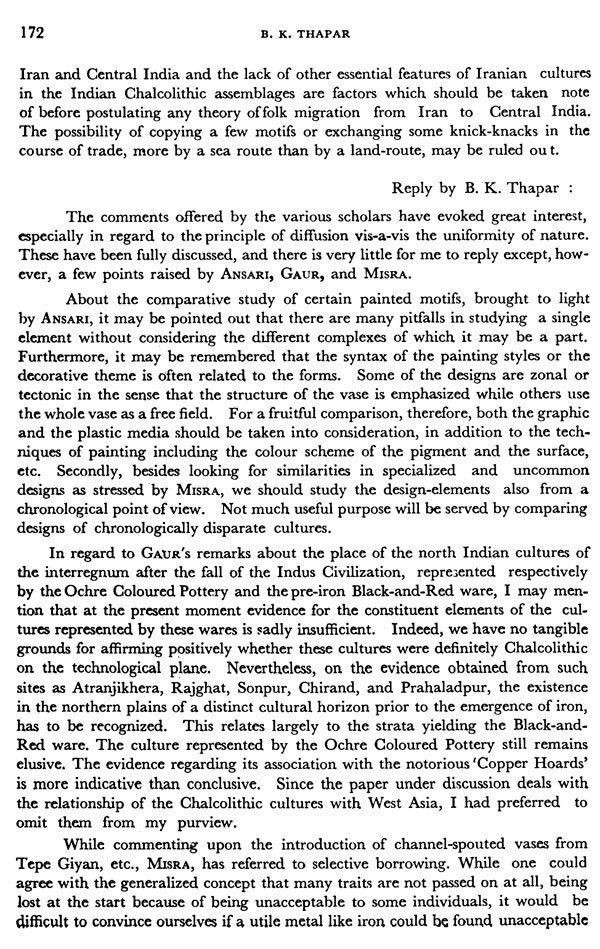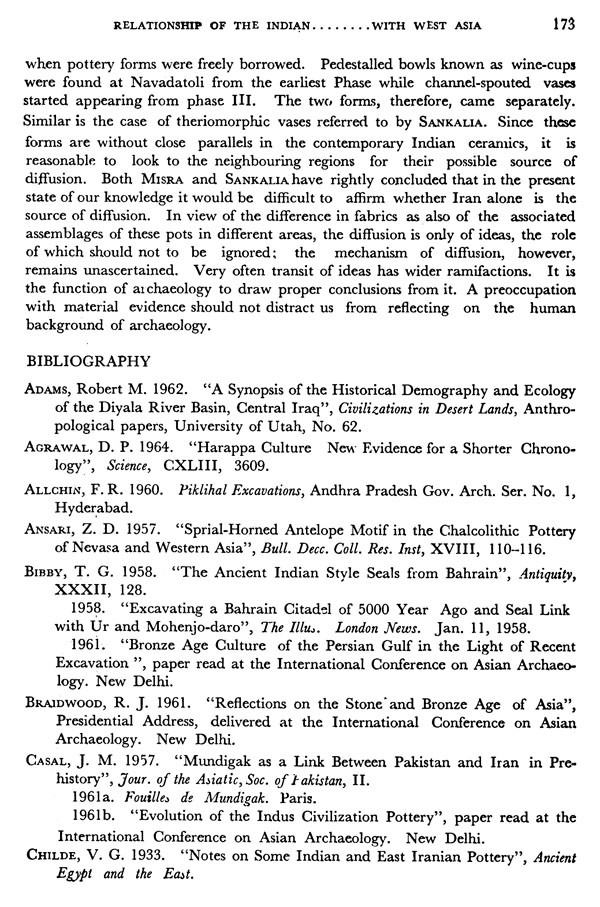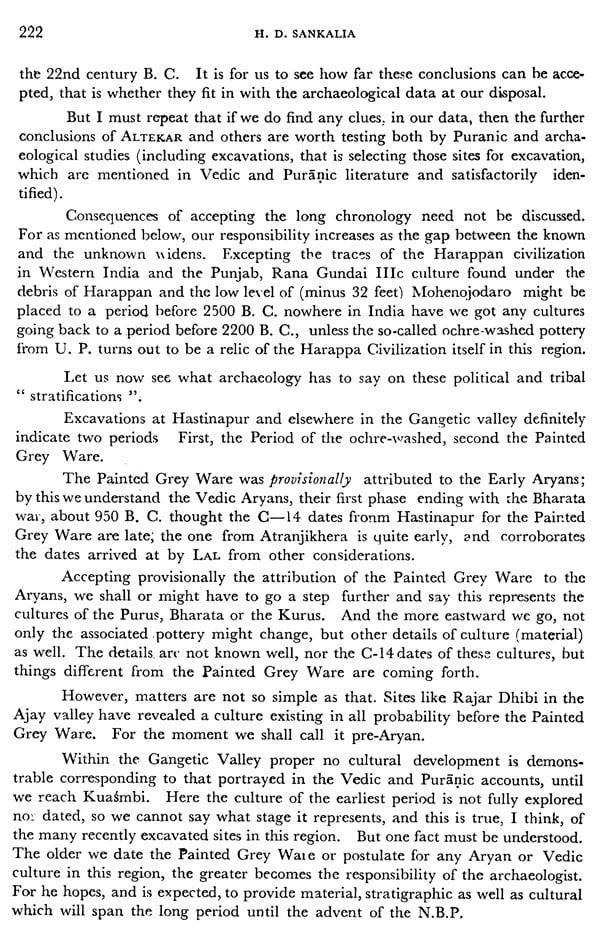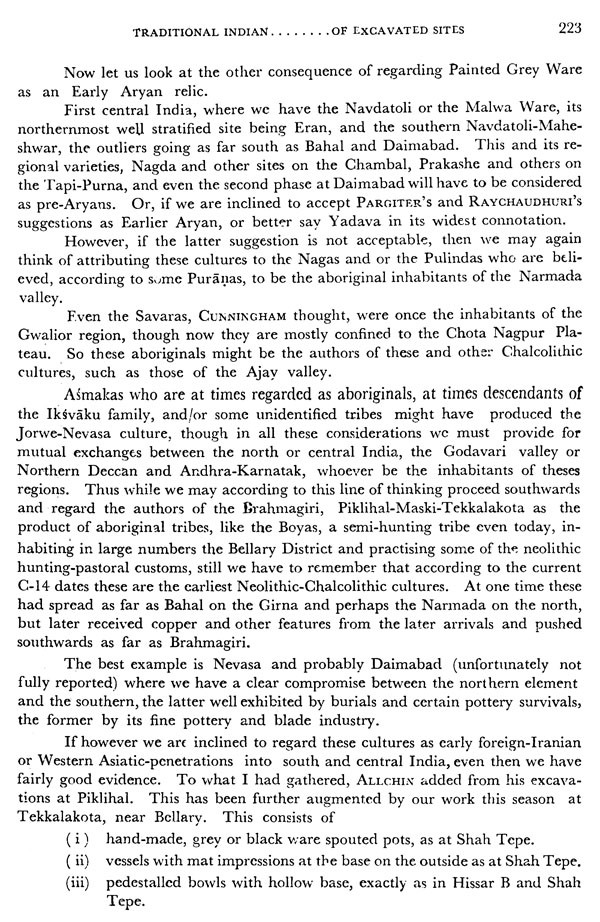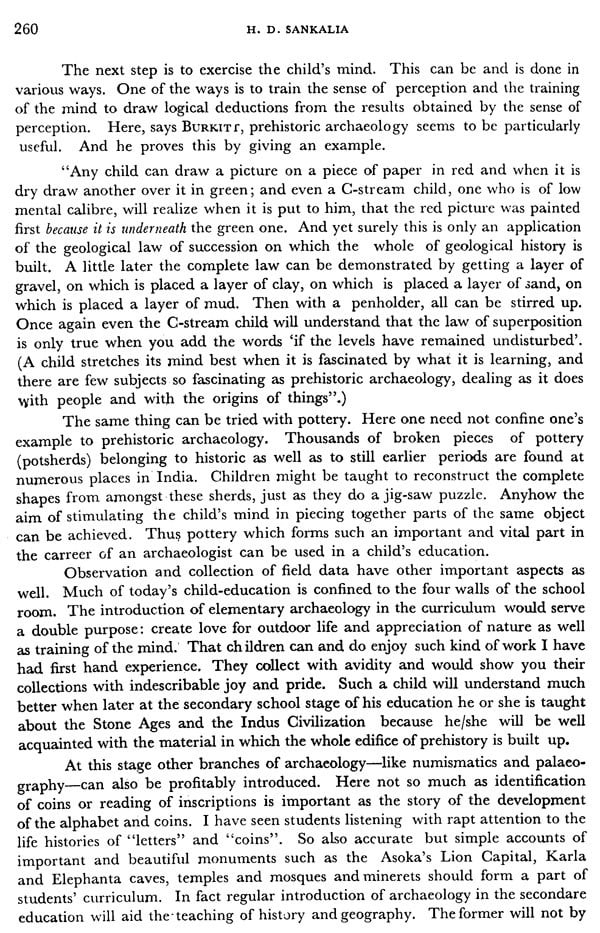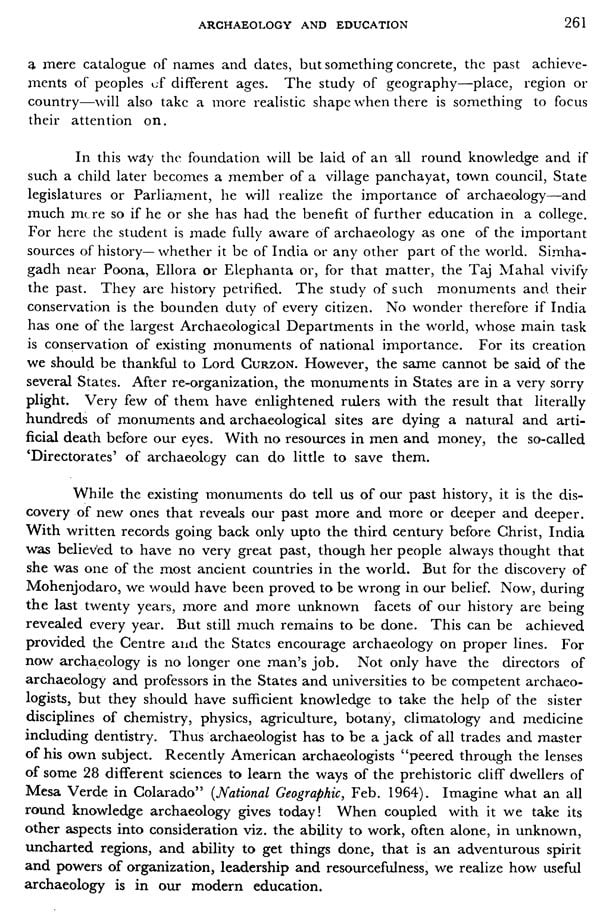
Indian Prehistory: 1964
Book Specification
| Item Code: | UBA455 |
| Author: | V.N. Misra and M.S. Mate |
| Publisher: | Deccan College Postgraduate and Research Institute |
| Language: | English |
| Edition: | 1995 |
| Pages: | 282 |
| Cover: | PAPERBACK |
| Other Details | 9.50 X 7.50 inch |
| Weight | 520 gm |
Book Description
Such an opportunity was provided by the University Grants Commission. Under their enlightened policy, universities in India are encouraged to hold summer and winter schools, seminars and symposia. Less than one such project, the Department of Archaeology, University of Poona, located at the Deccan College Postgraduate and Research Institute, held a Seminar in prehistory and protohistory of India from 24th to 31st May, 1965. This Seminar had three main aims:
(1) To discuss a few important problems in prehistory and protohistory created by intensive work in these two fields of archaeology during the last 15 years or so; 2. To bring together the scholars-young and old-senior or junior- working in this field, irrespective of their status, so that the latest data can be freely discussed, problems redefined and attempts made to face them. (3) The third objective was to place before the scholars at large the latest happenings in Indian prehistory and protohistory. For it would appear that excepting a few scholars in Russia, scholars elsewhere do not care to acquaint them- selves with Indian publications and hence theories and views old are "dished out" to the world in publications which claim to speak on world prehistory. It is hoped that the publication of the proceedings of the seminar would help to remove this deliberate neglect of Indian prehistory.
With a view to making our discussions purposeful three precautions were taken.
As there was not much time for previous consultation among colleagues in other parts of India regarding the themes to be discussed at the seminar, and the persons to be invited, for participating in various the themes chosen were not very specific, but broad, so that we could attack them from different points of view. Secondly, only those scholars were invited to participate in the seminar who as field workers or organizers or authors had intimate first-hand knowledge of the subjects selected for discussion. From among these scholars, a panel of scholars was prepared and each scholar was to prepare a working paper on a chosen theme.
**Contents and Sample Pages**
